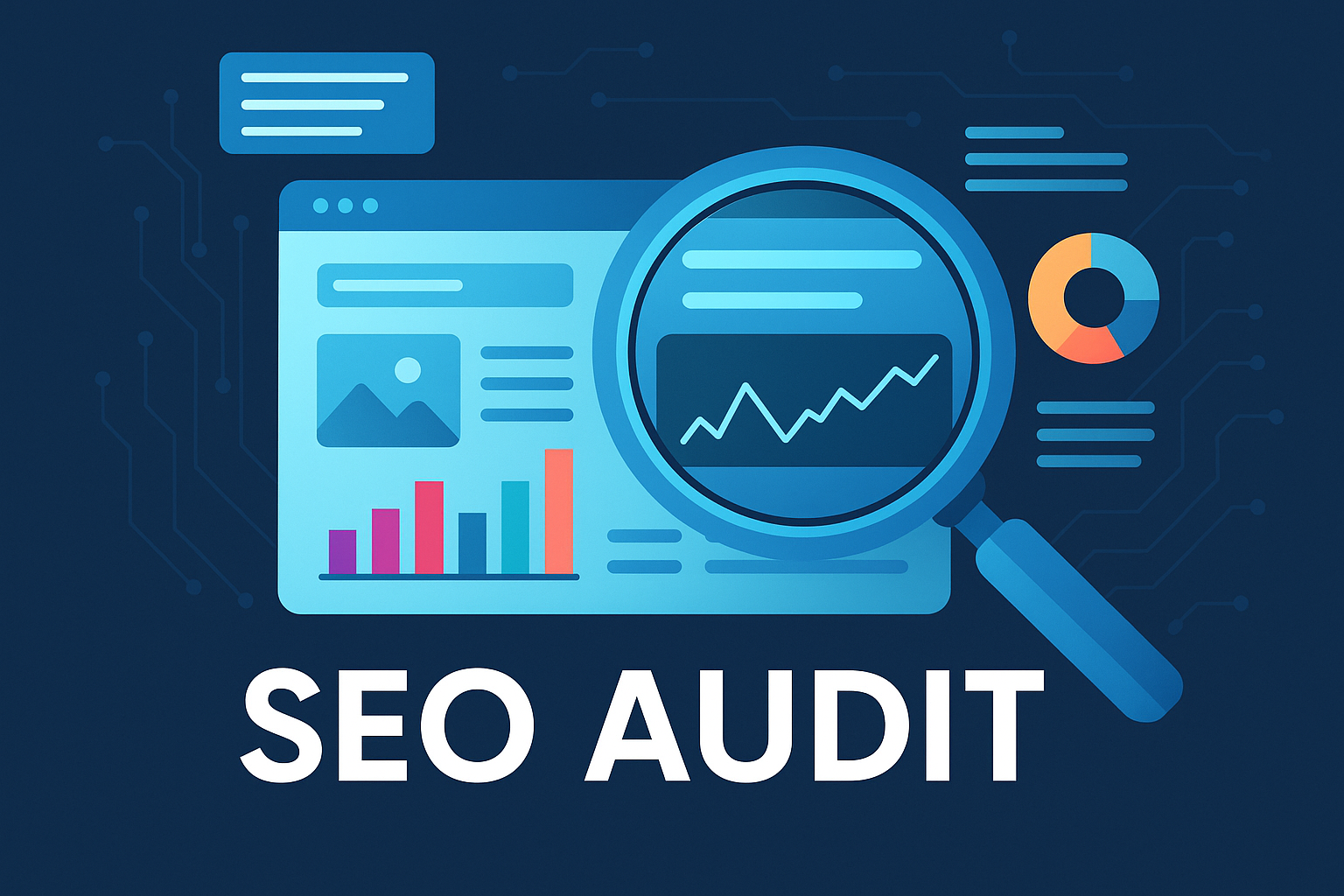Why Every Business Needs an SEO Audit in 2025
Search engines are smarter than ever in 2025, and competition online continues to intensify. An SEO Audit is no longer optional, it is the foundation of a strong digital presence. Without regular audits, businesses risk losing visibility, traffic, and potential customers to competitors who continuously optimize.
An audit helps identify hidden errors, technical issues, and missed opportunities that could otherwise prevent your website from achieving higher rankings. From site speed and mobile usability to keyword mapping and backlinks, an audit provides the complete picture of your digital health.
At DWebSol, SEO specialists emphasize that regular SEO Audits act as both a safety net and a growth accelerator for businesses that want to stay ahead in evolving digital landscapes.
What an SEO Audit Covers in 2025
A thorough SEO Audit digs into every layer of your website and its visibility signals. The checklist can be divided into four core areas:
Technical SEO Audit
- Crawlability and indexation
- Mobile responsiveness
- Site speed and Core Web Vitals
- HTTPS and security signals
On-Page SEO Audit
- Keyword placement and semantic variations
- Meta tags and structured data
- Internal linking
- Content quality and readability
Off-Page SEO Audit
- Backlink profile and authority signals
- Brand mentions across digital platforms
- Local SEO citations for location-based businesses
User Experience (UX) & Engagement
- Bounce rates and dwell time
- Click-through rates from SERPs
- Accessibility and navigation flow
DWebSol’s SEO experts recommend businesses adopt a holistic approach, where all four pillars work together to strengthen online performance.
How to Conduct a Step-by-Step SEO Audit
Step 1: Crawl Your Website
Use advanced crawling tools to simulate how search engines view your website. This step identifies duplicate content, broken links, missing tags, and crawling issues.
Step 2: Review Site Architecture
Organize content logically. Ensure your most important pages are accessible within three clicks from the homepage.
Step 3: Analyze Page Speed
With Core Web Vitals as a ranking factor, loading time directly impacts SEO. A fast, mobile-optimized site improves both rankings and user retention.
Step 4: Audit Keywords and Content
Check if your content matches user intent. Look for gaps where semantic keywords and NLP variations can improve visibility.
Step 5: Inspect Metadata and Schema
Optimize titles, meta descriptions, and structured data. Adding schema improves visibility in AI-driven search results and enhances click-through rates.
Step 6: Evaluate Backlinks
Audit your backlink profile for quality, relevance, and authority. Remove toxic links and focus on acquiring industry-specific references.
Step 7: Assess User Engagement
Review bounce rates, dwell time, and conversions. User experience is now one of the strongest signals for search rankings.
SEO consultants at DWebSol stress that while tools provide data, true value comes from expert interpretation and actionable recommendations.
Why SEO Audits Are Critical for Growth
Businesses that conduct regular SEO Audits gain a competitive edge because they:
- Identify hidden errors before they damage rankings
- Adapt quickly to algorithm updates
- Optimize for AI-driven search by using semantic and contextual SEO strategies
- Improve user satisfaction by refining site performance
Ignoring audits means leaving money on the table. Competitors who continuously improve will capture the audience you miss.
Before and After SEO Audit
| Factor | Before Audit | After Audit |
| Page Speed | 5s | 2s |
| Indexed Pages | 72% | 98% |
| Bounce Rate | 65% | 40% |
| Keyword Coverage | Partial | Full |
When Should Businesses Run an SEO Audit?
- Quarterly – For industries with high competition or frequent updates
- Bi-Annually – For small businesses with stable websites
- After Major Changes – New website launches, redesigns, or migrations
- After Algorithm Updates – To ensure compliance with the latest ranking signals
According to DWebSol, businesses that audit regularly adapt more quickly to algorithm changes and sustain growth in competitive markets.
Who Should Handle an SEO Audit?
While tools can automate parts of the process, expertise is required to interpret data correctly. An SEO specialist ensures not only that issues are identified but that solutions align with long-term strategy.
- In-house marketing teams benefit from ongoing visibility.
- SMBs may outsource audits for cost-effective expert analysis.
- Enterprises require comprehensive audits to manage complex sites.
DWebSol provides tailored SEO Audit services for businesses of all sizes, ensuring that strategies are aligned with specific industry goals.
What Businesses Gain After an SEO Audit
An effective SEO Audit transforms your website into a growth engine. Results often include:
- Higher search rankings
- Increased organic traffic
- Better conversion rates
- Improved trust and authority
- Competitive advantage in saturated markets
In 2025, an SEO Audit is no longer a checklist for technical errors – it’s a roadmap for business growth, and DWebSol ensures businesses turn that roadmap into measurable results.
Conclusion: The Value of SEO Audits in 2025
As digital competition intensifies, the businesses that thrive are those that consistently evaluate, adapt, and optimize. A regular SEO Audit ensures your website meets modern search standards, satisfies user expectations, and secures long-term visibility.
The step-by-step checklist is not just about fixing issues – it’s about discovering opportunities. When conducted thoroughly and regularly, SEO Audits empower businesses to stay ahead, capture more traffic, and achieve sustainable growth.
With the guidance of experts like DWebSol, businesses in 2025 can turn audits into actionable strategies that secure not just rankings but lasting digital authority.
